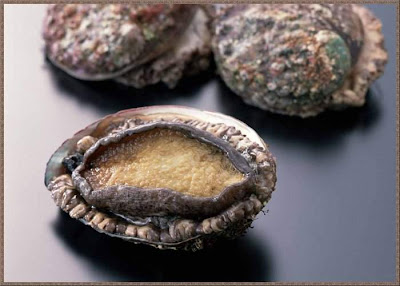Knowledge Boost
How to Increase your knowledge base, and continue learning. An interest in the world around you, and the never ending quest for knowledge, can actually boost your prain power. Here are some ways to experience a knowledge boost — and keep your brain strong:
1. Discover your learning style: In order to accumulate knowledge, you need to understand how you learn best. Figure out your learning style, and then use that knowledge to boost your brain power.
2. Rediscover the encyclopedia: You can get a great overview on a number of different subjects when you read an encyclopedia. Do it online or offline, but you can learn about something new each day when you read the encyclopedia.
3. Revisit tough school subjects: You can give your brain a workout when you revisit tough school subjects. Had a hard time with math? Go back and do a refresher online. Was English your Achilles heel? Review sentence diagramming.
4. Stay up to date: Know what’s happening in the news. Keep track of current events by watching the nightly news, reading the newspaper or looking online.
5. Look at things from the other side: If you have an opinion about a certain subject or issue, look at it from the other side. Learn the merits of the opposing opinion, and try to understand another point of view. This type of critical thinking will boost your knowledge base and your brain power.
6. Consider philosophy: There are few things that can give your brain a good workout like trying to answer philosophical questions like “What is truth?” and “Why are we here?”
7. Take community education classes: If possible, take a class in something you find interesting. You can audit a class at a university or enroll in community education. A great way to continue building knowledge and strengthening your brain.
8. Enjoy open courseware: Even if you can’t attend a class in the “real” world, you can do so online. Many universities offer open courseware that allows you to learn for free. MIT has especially expansive open courseware offerings.
9. Read scientific journals: Whether you read online or off, getting information from scientific journals and other publications can boost your knowledge and brain power.
10. Look for new experiences: Few things can increase your brain power like new experiences. Look to experience new things every so often.
11. Pay attention to your environment: The way your environment is arranged can help you focus better and absorb knowledge better. A tidy environment, and one that is cool, can actually help enhance your study skills.
Creative Boost
Creativity can help improve your brain function. Here are some tips for using creativity to build your brain’s strength and agility.
12. Explore your creative side: Try writing, art or performance to see whether you enjoy. You don’t even have to be good at it; just working at your creativity can help you increase your brain power and speed.
13. Read for fun: Don’t just read for knowledge; read for fun as well. Even if you enjoy reading novels, you can boost your brain power by working your imagination as you journey to new places using your mind.
14. Don’t forget to laugh: Laughing relieves stress and releases chemicals that help you feel positive. Humor can be a good way to release tension and let your brain get a little relaxation.
15. Learn a musical instrument: The learning processes that go into music can benefit you. Learn a musical instrument to increase your brain power and enhance personal enjoyment.
16. Listen to music: The creative processes in music can benefit you, even if you just listen. Classical music is especially beneficial for the brain.
17. Volunteer: Use your talents and skills to help others. Volunteering can be a good way to build brain power as you meet new people and learn new things.
18. Learn about other cultures: Understanding other cultures can be an interesting and creative exercise that can help you gain new perspective while making your brain stronger.
19. Keep a dream journal: A dream journal can encourage you to examine your subconscious, and you may find new answers in creative ways in your dreams.
20. Develop a hobby: Find something you enjoy doing and develop that skill through a hobby.
21. Interact with others: Socializing can be a to learn new ideas and share your own. Creative sharing — or just relaxing with others — can boost creativity and make your brain stronger.
22. Consider a child’s perspective: Look at things as a child would. This is a great creative exercise that can help make your brain stronger
Memory Tricks
If you want to improve your memory and make your brain faster at recall, here are some tricks you can practice:
23. Use an organizer: Organizing your thoughts and appointments can help you recall needed information faster.
24. Get adequate sleep: You remember things better when you are properly rested.
25. Use more senses: As you learn, focus on smell, taste and touch as well as sight and sound. This will help you with recall.
26. Linking: Link a new concept somehow to something you already know. This will help you organize the information in your brain.
27. Practice: Just like anything else, if you want a good memory, you have to practice. Practice recalling information you have learned.
28. Mind mapping: You can use mind mapping to learn how to visualize what you have you learned, and then recall it earlier.
29. Try to avoid distractions: Concentrate on what you are doing, and try to avoid distractions when possible.
30. Mnemonic devices: You can use a number of mnemonic devices to improve your memory function, including systems of letters, grouping and even rhymes.
31. Take notes: When learning something, take notes. Writing it down can help you commit things
32. Use your non-dominant hand: You can increase your brain power and your memory by exercising your brain with the use of your non-dominant hand.
33. Make a to-do list: Sometimes you need external reminders to help you keep your memory sharp. A to-do list can help you stay focused throughout the day.
Stay Sharp
Once you have begun building your brain power, you want to stay sharp. Here are some tips that can help you keep your brain strong and fast.
34. Physical exercise: You can enhance your brain function by staying physically active.
35. Meditation: You can sharpen your mind powers with some meditation. Give your brain a charge, and keep it focused.
36. Relaxation: De-stress yourself in order to give your brain time to process and rest a little. This will help it stay sharp and learn better in the future.
37. Sudoku: You can exercise your mind skills, and keep them sharp, with the number game Sudoku.
38. Crossword puzzles: Simple and fun crossword puzzles can help exercise your mind to keep it fast and sharp.
39. Trivia games: Played online or with a group of friends in person, trivia games can be great ways to exercise your memory and your brain.
40. Video games: Some video games are designed with education and brain function in mind. Games that require you to think things through and solve puzzles to advance can be helpful in maintaining your brain power.
41. Strategic board games: Games like chess, Risk and even checkers can help you analyze situations and think strategically, boosting your brain power.
42. Some card games: Some card games, like bridge, can keep your mind sharp by encouraging thought about strategy. Even poker can test your ability to determine probabilities.
43. Teach: One way you can keep your mind sharp is to teach others. You can teach as an adjunct, offer community classes or tutor in order to keep your mind sharp.
44. Learn sign language: Sign language connects motor skills to the brain, and brings more mental effort to communication.
Brain Food
If you want to boost your brain power and quickness, you need to eat the right things. There are some nutritional guidelines that can help you improve braing strength.
45. Omega-3 fatty acids: The oils found in fish and some plants, like flaxseed, can improve brain function.
46. Red wine: In very moderate amounts, red wine can help your brain.
47. Blueberries: These delicious berries can help neurons in your brain.
48. Strawberries: Antioxidants in strawberries can help your brain, and the vitamin C and potassium have other benefits.
49. Folic acid: This nutrient can help you avoid memory loss. Folic acid supplements can be a good addition to your brain food regimen.
50. Fiber: Keep your body and mind functioning properly and in balance with fiber.
51. Water: Dehydration can be detrimental to the brain. Drink lots of water to avoid this.
52. Eat breakfast: Get off to the right start every day with proper nutrition, and your brain will be more active.
53. Beware of caffeine: While moderate amounts of caffeine can be helpful (one cup of tea or coffee), too much can overstimulate the brain, and the following crash can cause problems.
54. Watch out for alcohol and drugs: Substance abuse is very detrimental to brain function.
55. Limit junk food: Junk food drains your brain power and slows it down. In order to make your brain stronger and faster, you need to limit your intake of junk.
Source:-
mastersinhealthinformatics








































 The flu season is just around the corner. And while those flus won’t kill you, they can weaken your immune system to the point that other, more dangerous, germs can take hold in your body. Just think how many times your cold turned into bronchitis or a sinus infection. And given that the average adult suffers two to three colds a year, that’s a lot of opportunities for serious illness — and just as many to prevent one!
The flu season is just around the corner. And while those flus won’t kill you, they can weaken your immune system to the point that other, more dangerous, germs can take hold in your body. Just think how many times your cold turned into bronchitis or a sinus infection. And given that the average adult suffers two to three colds a year, that’s a lot of opportunities for serious illness — and just as many to prevent one!














